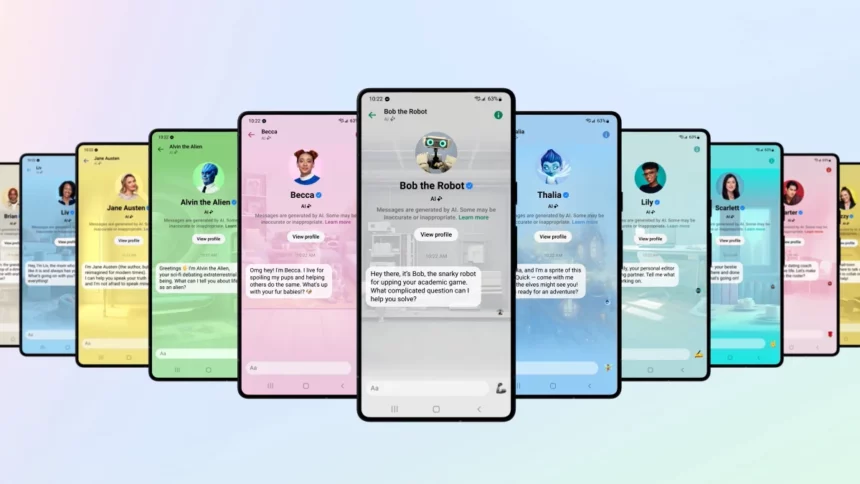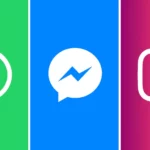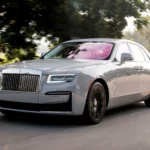In a groundbreaking move, Meta has officially launched AI-powered bots for its messaging platforms, including WhatsApp, Messenger, and Instagram. CEO Mark Zuckerberg had previously hinted at the company’s venture into AI personas, and now these AI chatbots, known as Meta AI, are poised to revolutionize user interactions.
Meta AI: The Answer to ChatGPT and Google Bard
Meta AI developed as a response to AI language models like ChatGPT and Google Bard, operates by leveraging Llama 2 to answer user queries through the power of the internet, facilitated by a partnership between Meta and Microsoft’s Bing. The expansion of Meta AI to include compatibility with Ray-Ban Meta smart glasses and Quest 3 is also on the horizon.
Meta markets Meta AI as a valuable tool for group trip planning on WhatsApp. Users can initiate it by typing “@MetaAI /imagine,” followed by their query, and Meta AI takes care of the rest.
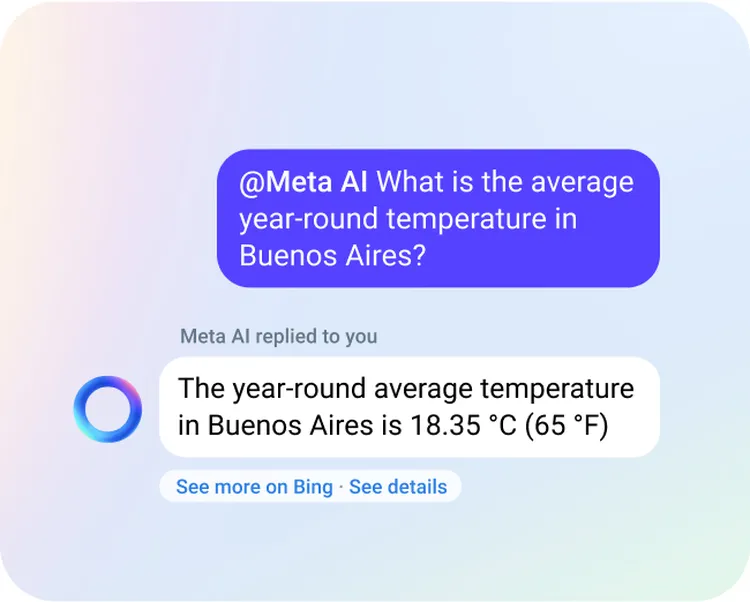
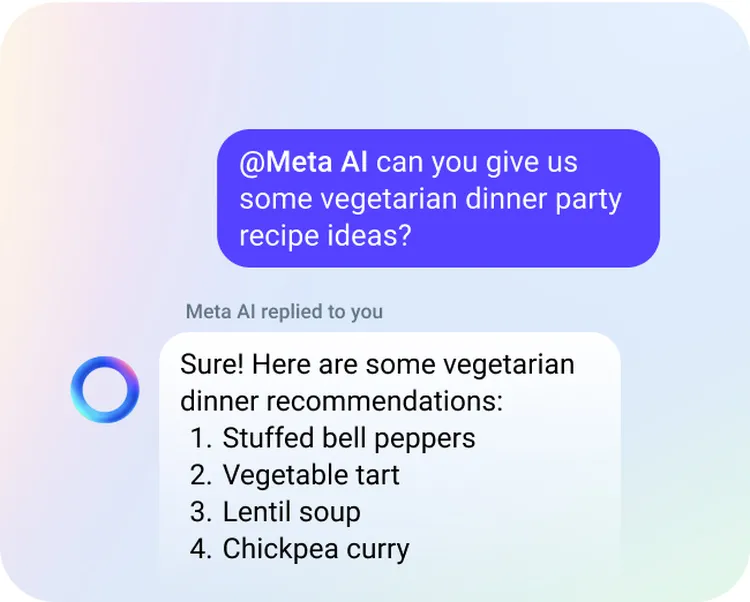
Meta introduces two exciting AI-driven editing features for Instagram enthusiasts, both powered by Emu’s technology. The “Restyle” tool enhances photos with captivating visual effects based on user-provided textual descriptions. Furthermore, “Backdrop” enables users to replace image backgrounds with their preferences, generating AI-enhanced images.
Meta also debuts AI stickers, powered by Llama 2 and Emu, initially tested on WhatsApp for Android. These stickers can be easily generated by entering a text prompt closely aligning with the description. Initially, AI stickers will roll out to select English-language users across WhatsApp, Messenger, Instagram, and Facebook Stories.
Meet the AI Celebrities
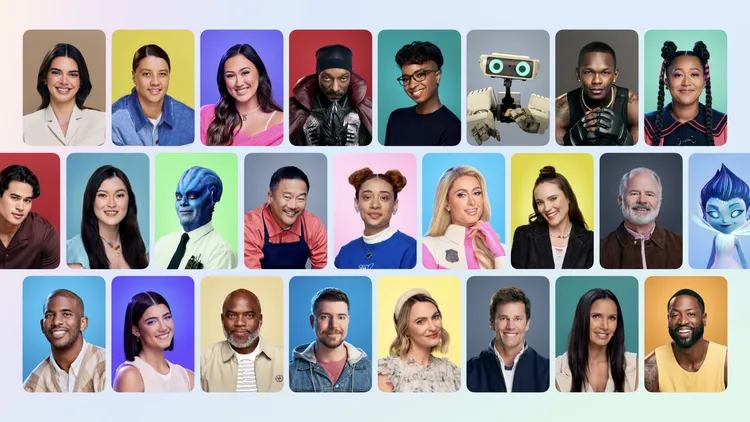
Meta introduces a diverse lineup of AI chatbots, each inspired by celebrities like Charli D’Amelio, Chris Paul, MrBeast, Kendall Jenner, and others. Some AI characters are already in beta testing in the United States, and more are expected to be added soon. These AI chatbots are designed to entertain users with interactive experiences, including games, stories, and recommendations.
Meta has ambitious plans to redefine user interactions through generative AI on social media and online platforms. With their extensive resources and expertise, integrating AI chatbots and other AI-driven features marks a significant step towards realizing Meta’s vision for the future.
Meta AI offers a sense of familiarity for those acquainted with OpenAI’s ChatGPT and similar chatbots. Meta envisions it as a versatile assistant capable of addressing various tasks, from trip planning to answering typical search engine queries. The partnership with Microsoft’s Bing ensures that Meta AI delivers real-time web results, distinguishing it from free AI assistants with less up-to-date information.
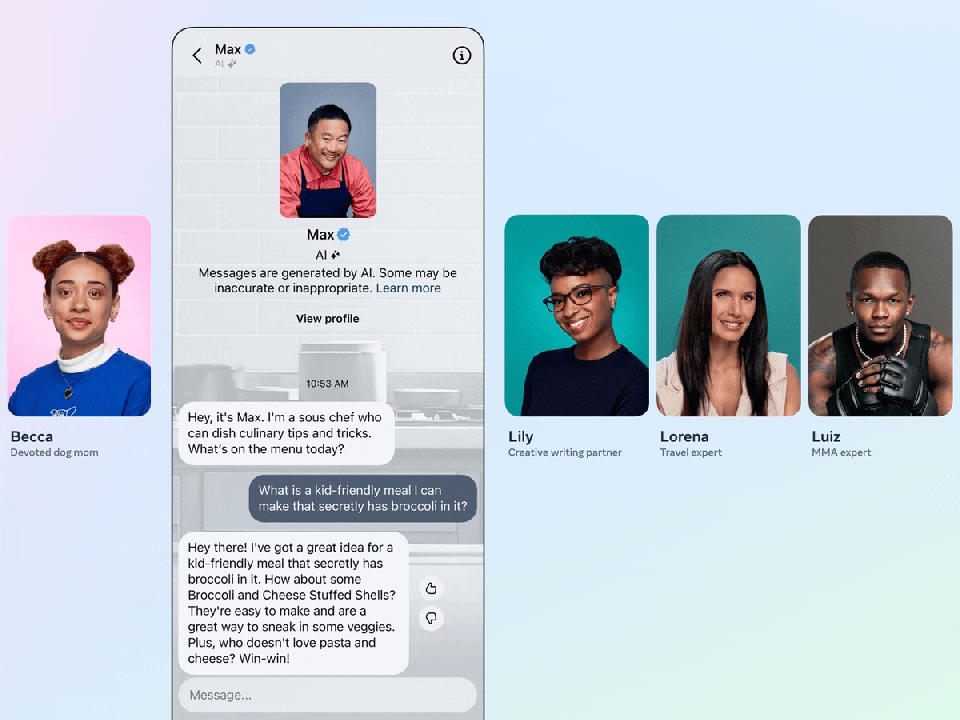
A standout feature of Meta AI is its ability to generate high-quality images through prompts like “/imagine.” During a brief demonstration, Meta AI produced stunning images within seconds, enhancing user experiences across the Meta platform.
The development of Meta AI draws inspiration from the rapid adoption of Llama 2, which has contributed to refining the assistant’s performance. This model, rooted in the core principles of Llama 2, has been fine-tuned for conversational and user-friendly responses. Meta AI boasts an expanded context window for more engaging interactions, delivering concise answers.
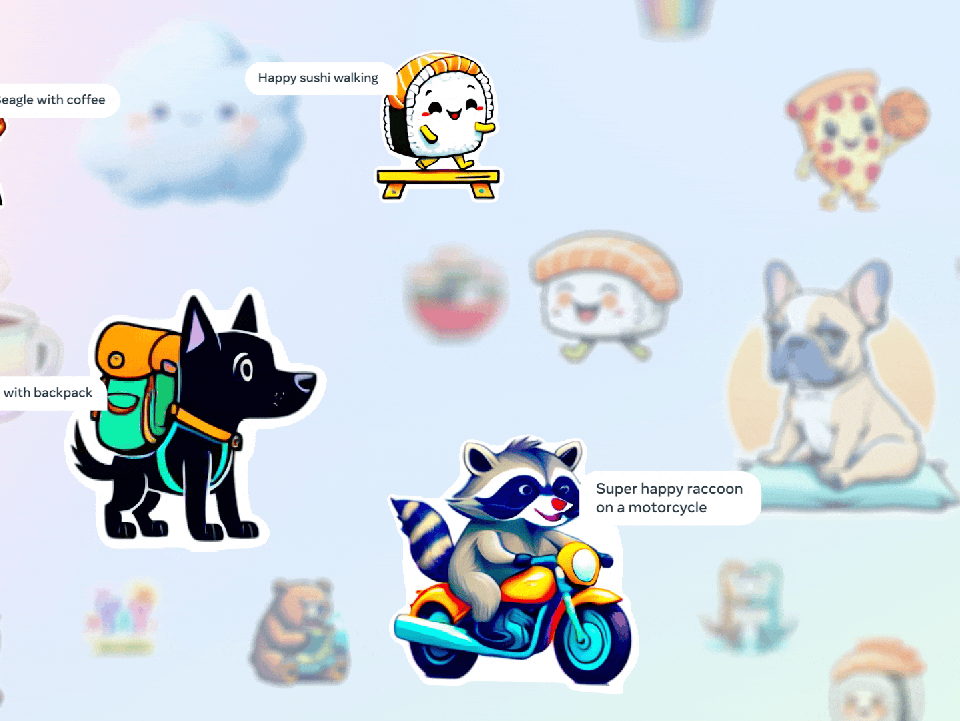
In addition to Meta’s assistant, the company introduced 28 AI characters across its messaging apps, many of which are inspired by celebrities. These characters come to life with subtle animations in their profile images, creating a more immersive interaction than traditional 2D chatbots.
Meta AI is equipped with safeguards to prevent inappropriate responses, underscoring the company’s commitment to responsible AI development. Extensive testing involving thousands of conversations ensures the reliability and appropriateness of Meta AI.

